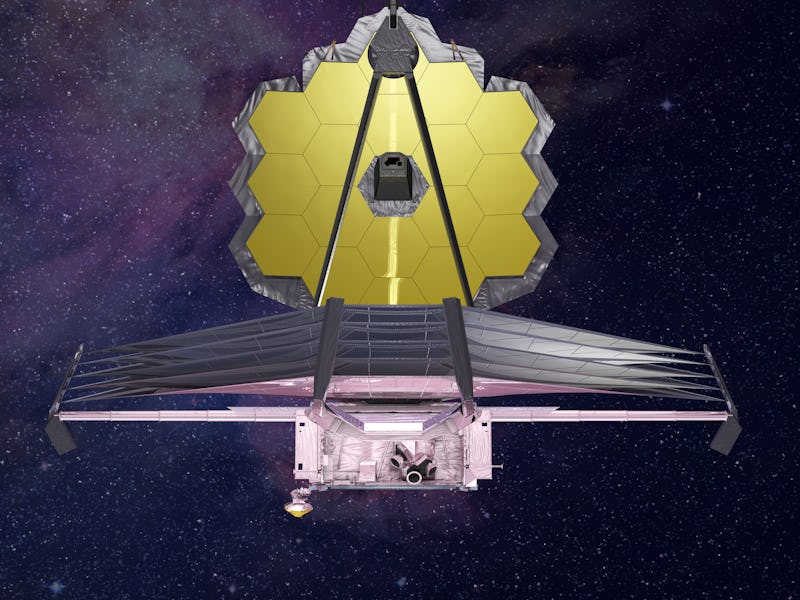During a teleconference on Tuesday, NASA officials announced that the much-anticipated launch of the James Webb Space Telescope will be rescheduled to May 2020 from its previous spring 2019 launch window. NASA’s successor to the Hubble Space Telescope has been marred by delays, this most recent one coming only six months after a previous change to its prior October 2018 launch date.
This delay could cost the space agency hundreds of millions of dollars, which could put it in danger of surpassing its Congressionally-mandated $8.8 billion budget. If this were to happen, NASA would be forced to get the JWST project re-approved by Congress. Legislators would then need to decide between either providing further funding towards completion or abandoning the mission altogether. This potentially jeopardizes more than a decade of planning by astrophysicist to utilize the JWST to explore distant exoplanets and compliment Hubble observations.
Artist rendering of the James Webb space telescope.
“Webb is the highest priority project for the agency’s Science Mission Directorate, and the largest international space science project in U.S. history,” says acting NASA Administrator Robert Lightfoot. “All the observatory’s flight hardware is now complete, however, the issues brought to light with the spacecraft element are prompting us to take the necessary steps to refocus our efforts on the completion of this ambitious and complex observatory,” said acting NASA Administrator Robert Lightfoot.”
Lightfoot and other NASA staff stated they needed additional time to test and assemble key components to the spacecraft. The team also suffered two major technical difficulties: Multiple tears in the JWST’s sunshield and improper thruster cleaning.
Faced with mounting pressure to deliver on this ambitious project, NASA has established an Independent Review Board, chaired by former aerospace executive Thomas Young. This panel will assess the project’s undertaking and provide a specific launch date in the months to come.
While NASA is determined to complete JWST, the fate of the mission might come down to a congressional decision. The space agency officials were hopeful, but the myriad delays surrounding this project have called into question the administration’s ability to take on ventures of this caliber.
